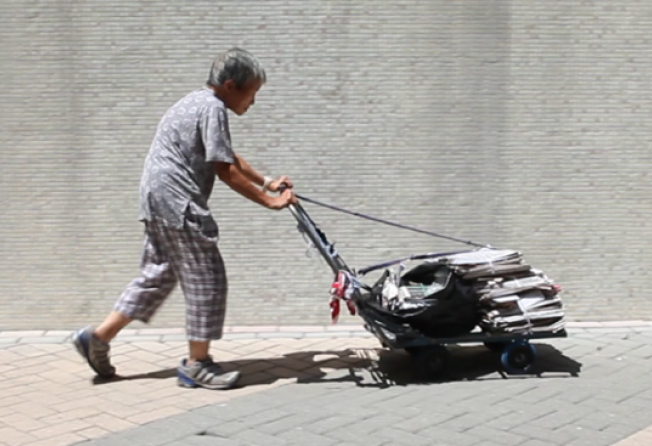On poverty line, CY Leung should let sleeping dogs lie
Administration’s attempt to redefine what it means to be poor is fraught with political peril

Poverty is politics. That was one reason why Chief Executive Leung Chun-ying introduced a poverty line in 2013, within a year of taking the top job. That was part of his election campaign to distinguish himself from his pro-business rival Henry Tang Ying-yen and the two previous chief executives, who were widely seen as unsympathetic to the poor.
Now, Carrie Lam Cheng Yuet-ngor, the chief secretary and head of the Commission on Poverty, wants to revise the poverty line. That will open the Leung administration to accusations that it’s really no different from that of his predecessors.
Back then, Leung’s rush to set a poverty line meant there was serious disagreement over how it is defined, crucially within official circles. Currently, poor household income – defined as less than 50 per cent of the city’s median income – is the single determining indicator.
Without considering assets, “income-poor, asset-rich” people may be defined as poor. This means the poverty situation has been overstated. It led to the shocking, oft-quoted headline figure of 1.3 million people living below the poverty line in 2013.
That definition of the poverty line was acceptable, though, to welfare activists and pan-democratic politicians, but not to elite officials and establishment politicians, who think it makes Hong Kong “look bad”.
Meanwhile, many bureaucrats and academics think the poverty line is a purely technical issue and is open to adjustments.
Why do Leung and Lam think it worthwhile to reopen the debate and spark more controversy when he actually has a defensible record in fighting poverty? Under Leung, recurrent welfare spending has jumped above HK$60 billion from a low of HK$37.6 billion in 2010/2011 under his predecessor, Donald Tsang Yam-kuen.
The 1.3 million figure is arrived at without considering welfare benefits. Once recurrent benefit payments are factored in, it drops to 962,000. If you include benefits and public housing, the initial figure is halved to 648,000. The issue can be explosive at a time when poverty and inequality have become burning issues in Hong Kong and elsewhere. Welfare advocates and pan-democrats will likely make that a new battlefront.
Someone like Leung, who is near the end of his term in office, might consider letting sleeping dogs lie.